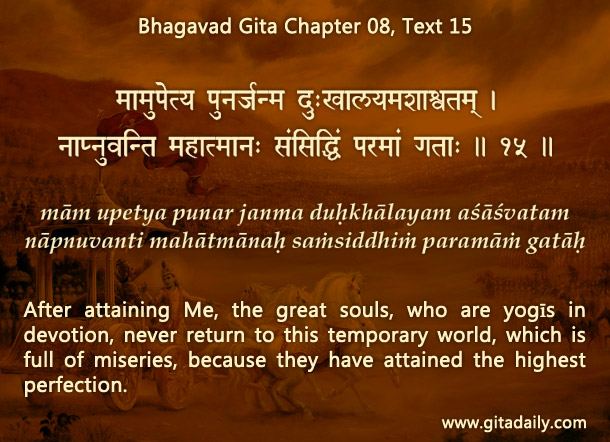If a doctor declares that a particular limb of a patient is incurable and needs to be amputated, someone might deem him pessimistic. But if his prognosis about the post-amputation recovery of the patient is positive, then he may actually be optimistic about what matters most – the patient’s overall health.
Similarly, when the Bhagavad-gita (08.15) declares the world to be a place of misery, some people deem it pessimistic. However, this declaration needs to be seen in the light of its overall worldview. The same Gita also explains that matter is peripheral to our essential identity as souls. We are meant for eternal happiness at the spiritual level in a loving relationship with Krishna. Our present entanglement in a material body comprises an existential incompatibility: we eternal spiritual beings are seeking pleasure in temporary material things. This incompatibility and its concomitant suffering stems from our underlying infatuation with matter. Thus, from the perspective of the soul, matter far from being an integral limb that needs to be amputated, is an unnecessary baggage that needs to be shed.
And though the Gita deems the world miserable, it recommends not apathetic rejection of the world, but responsible renunciation – not a random hacking off of the diseased limb, but a careful amputation that promotes bodily healing. Hence the Gita’s paradoxical call to Arjuna to fight for establishing dharma, order, in the very world that it deems miserable. It concludes by exhorting us to live according to the dharma of bhakti that progressively attaches us to Krishna, the source of all happiness, and detaches us from the world. And it assures that the process of bhakti is joyful (09.02), granting us access to spiritual happiness even while we are in the material world.
Thus, the Gita is optimistic about what matters most – our quest for happiness.
Explanation of article:

Podcast:


Leave A Comment